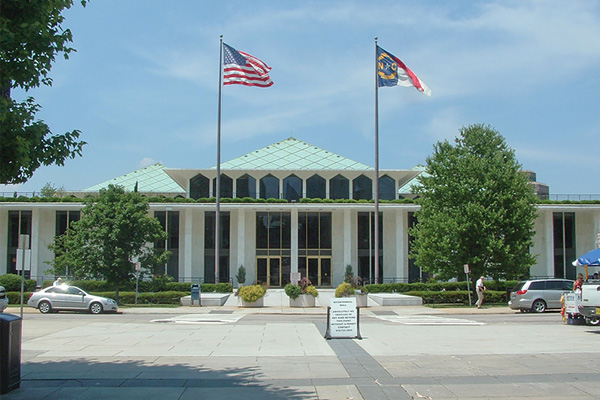Eighteen Republican North Carolina state senators have formally asked Gov. Roy Cooper exactly what his latest executive order means when it comes to worship services.
Executive Order 138, better known as Phase 1 of the reopening process, clearly singles out worship services for special restrictions, but the Republican senators in a letter dated Friday, May 8 ask what those restrictions mean for houses of worship.
The letter notes that “mass gatherings” of more than 10 people are prohibited, but worship services and other activities protected by the First Amendment are excluded from that prohibition.
The letter states, “We commend you decision to allow worship services to proceed. The right to worship is protected by the First Amendment and should never be infringed. Particularly during this time of crisis, people are relying on their faith and the support of their church families.”
But the letter notes that the Phase 1 order “provides that any worship services or other protected First Amendment activities excluded from your definition of mass gatherings ‘shall take place outdoors unless impossible.’ Many faith leaders and other constituents who are eager to resume worship services this Sunday have reached out to our offices with confusion of what conditions make an outdoor worship service ‘impossible.’”
The letter continues, “Is a worship service impossible in the event of severe weather, light rain, strong wind, heat or cold? Is it impossible if a particular church lacks suitable outdoor space to conduct a worship service for its congregation? Is it impossible to conduct a worship service outside if the audio, visual or other equipment necessary to conduct the service cannot be moved outside or is otherwise at risk of damage if moved outside?”
The letter asks for immediate clarification of the conditions that make an outdoor worship service “impossible” so that churches and faith organizations can make plans for their services without fear of criminal penalties “if they don’t reach the correct interpretation of ‘impossible.’”
The letter does not ask the larger question, which is why those who wish to exercise the freedom to shop, which is not protected by the First Amendment, are given far more leeway to exercise that freedom than those who wish to exercise their freedom to worship, which is protected.


Our rights according to our constitution come from God not man. Churches should hold services any way they choose.
You are Absolutely Right. And the US Constitution Protects and guarantees our right to “Freedom of Religion” in the First Amendment !!
I agree!
Oh, you ask too many questions, Mr. Hammer.
you can never ask too many questions, or be too rich or too thin…..
No order of any kind can prohibit or control ANY church service. The Right of Freedom of Religion is specified in the First Amendment of the US Constitution and CAN NOT BE ABRIDGED in ANY way. The Governor, nor the US President, nor the US Congress, Senate, or State House can Ban. Prohibit or Control any church service. The Governor should be sued on his action in this manner!
Just go to church, and sit apart. If they will let you in.